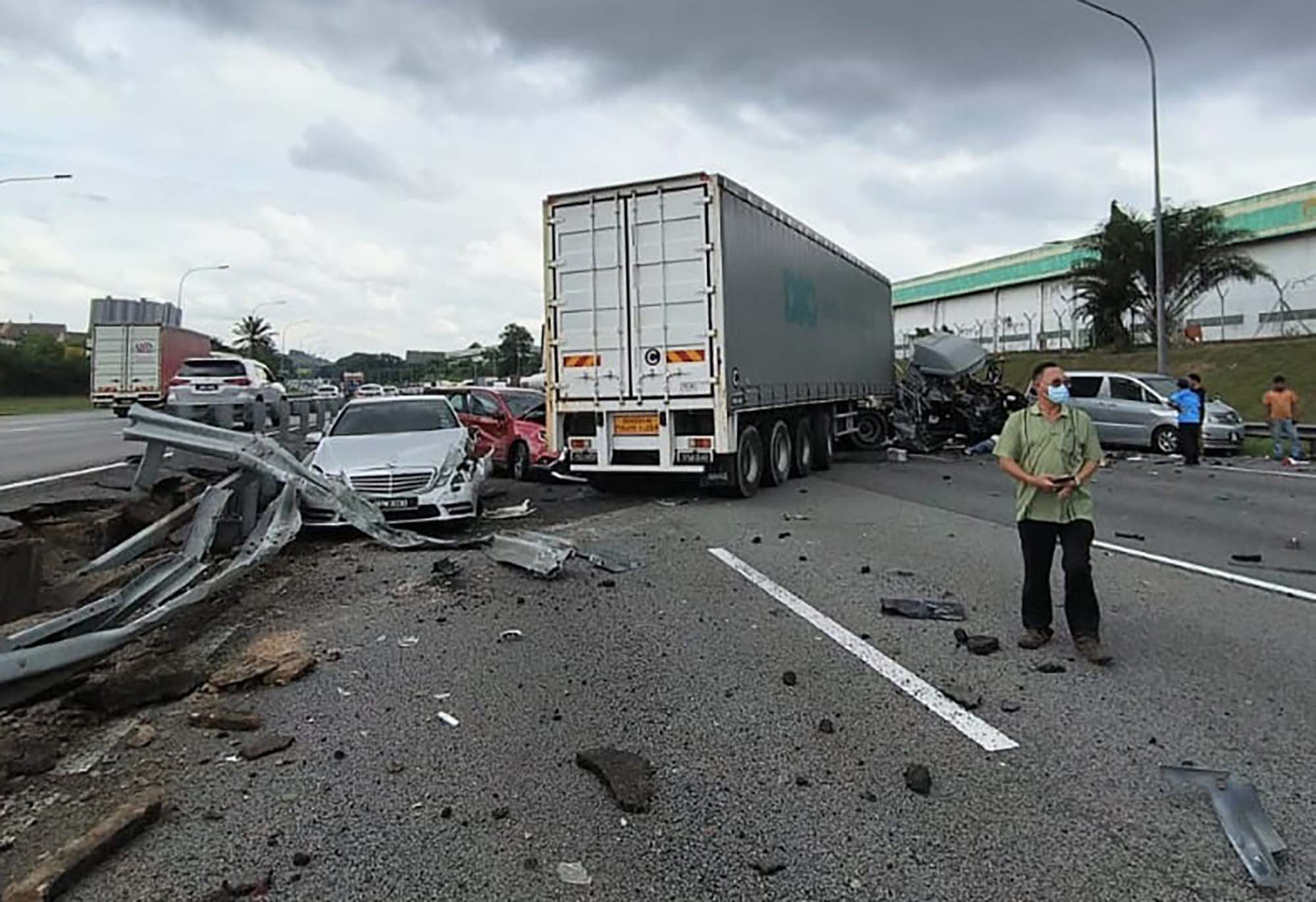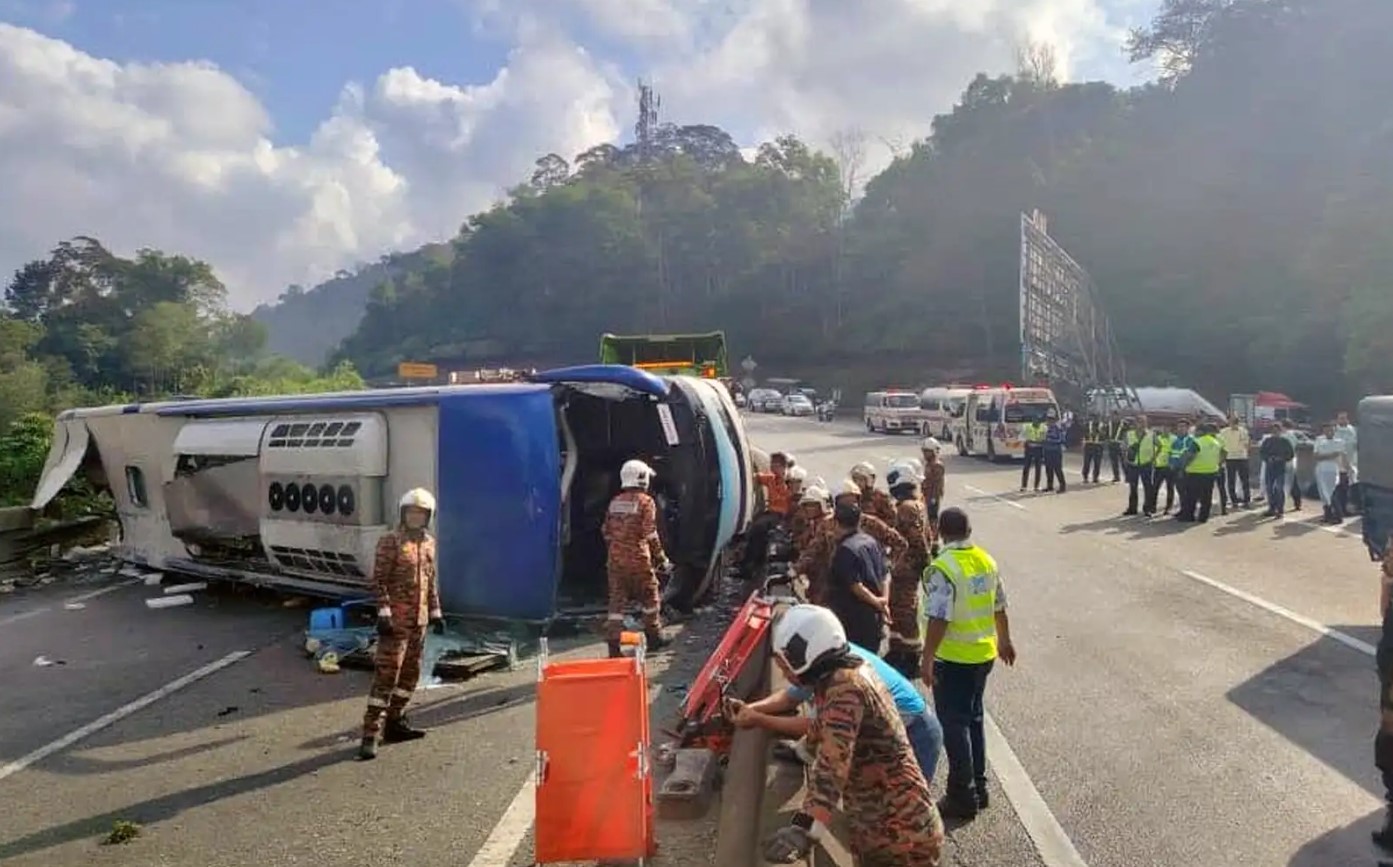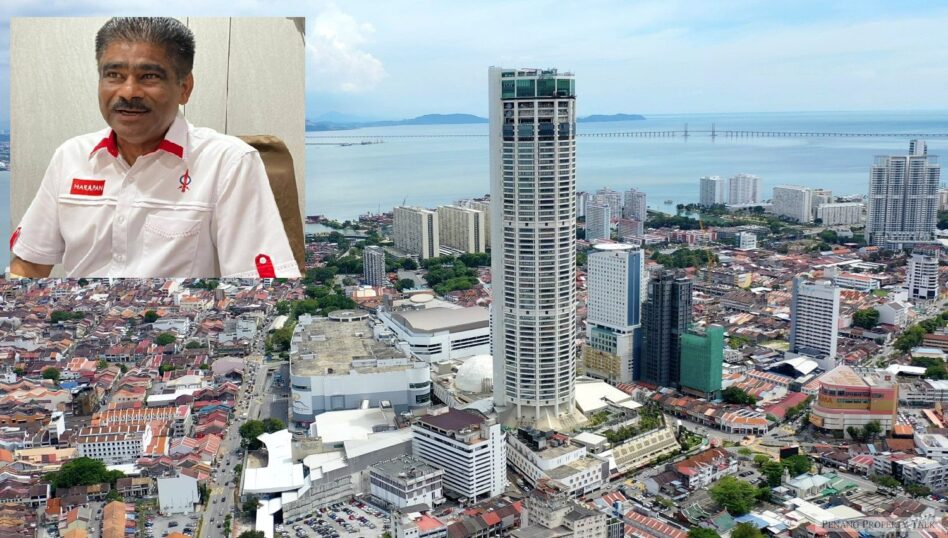ROAD accidents involving heavy vehicles, such as lorries, have reached alarming levels in Malaysia, raising serious concerns about road safety and governance.
Over the past ten months, there has been a marked increase in such incidents, many resulting in devastating fatalities, including entire families being wiped out.
Despite repeated promises of investigations and transparency, the issue remains inadequately addressed, overshadowed by bureaucratic inefficiencies and misplaced priorities.
Some root causes of road accidents in Malaysia
Inadequate highway infrastructure
Malaysia’s highways, especially the North-South Expressway (PLUS), are increasingly overwhelmed by rising traffic volumes.
With only two or three lanes in most sections, they are ill-equipped to handle the surge in vehicles, particularly heavy lorries.
Efforts to construct lateral highways, such as the West Coast Expressway (WCE), have provided some relief but are insufficient to divert significant traffic away from the overburdened PLUS.
Moreover, accident-prone stretches lack essential safety features like emergency lanes.
Seasonal traffic peaks
During holiday seasons, road congestion intensifies, putting immense pressure on drivers. Despite restrictions on heavy vehicles during these periods, the sheer number of vehicles on the road amplifies risks, leading to spikes in accidents.
Driver competence and licensing issues
Many heavy vehicle drivers lack adequate training, with some even obtaining licenses through corrupt practices. This raises questions about the efficacy of government oversight in ensuring drivers are competent and well-prepared for the challenges of operating heavy vehicles.
Vehicle roadworthiness
A significant number of heavy vehicles involved in accidents are not roadworthy. Insufficient enforcement of mandatory inspections exacerbates the problem, allowing unsafe vehicles to remain operational.
Corruption and lax enforcement
Corruption within the transport industry undermines regulatory efforts. From obtaining licenses to securing vehicle permits, unethical practices are rampant, often compromising public safety. Enforcement agencies are perceived as lenient, further enabling non-compliance.
Neglect of environmental and wildlife concerns
The WCE, while aesthetically pleasing, is a death trap for wildlife. The lack of animal crossings has led to frequent wildlife fatalities, highlighting a glaring oversight in transport planning.

The broader implications
The systemic issues contributing to Malaysia’s high rate of road accidents reflect a deeper problem: the lack of political will.
The current administration, despite its rhetoric, has failed to prioritise road safety.
Misplaced focus, such as on commercial ventures like the sale of fancy license plates, detracts from critical reforms needed to address these issues.
Proposed solutions
Comprehensive infrastructure upgrades
Expand the North-South Expressway and other major highways to accommodate increasing traffic and incorporate additional lanes, emergency pullovers, and better lighting along accident-prone stretches.
Promote rail transport for heavy goods
Diverting heavy goods transport to railways can significantly reduce the burden on highways, thereby decreasing the likelihood of lorry-related accidents.
Strict licensing and training standards
Implement rigorous standards for issuing driving licenses, particularly for heavy vehicle drivers. Regular training and assessments should be mandatory to ensure competence.
Enhanced vehicle inspection protocols
Strengthen enforcement of roadworthiness checks for heavy vehicles, with severe penalties for non-compliance.
Combat corruption in the transport sector
Introduce independent oversight bodies to ensure transparency and accountability in licensing and permitting processes.
Wildlife protection measures
Incorporate wildlife crossings and other safety features into highway designs to minimize animal fatalities and improve ecological sustainability.
Public awareness campaigns
Launch nationwide campaigns to educate drivers about road safety, focusing on defensive driving techniques and the dangers of reckless behaviour.
Political commitment to reform
The government must demonstrate genuine commitment to addressing road safety by prioritising reforms and holding relevant agencies accountable.
Leadership
Prime Minister Datuk Seri Anwar Ibrahim’s administration has an opportunity to lead transformative changes in the transport sector.
Replacing ineffective leadership within the Transport Ministry with dedicated individuals focused on road safety could signal a renewed commitment to saving lives. Moving beyond token gestures to implement tangible reforms will be critical in reversing the trend of fatal road accidents.
If immediate and decisive actions are not taken, Malaysia risks witnessing an even greater toll from road accidents, overshadowing other public health crises.
The time for complacency has passed – it is now imperative to act decisively and responsibly to safeguard lives on the nation’s roads. – Jan 1, 2025
Former DAP stalwart and Penang chief minister II Prof Ramasamy Palanisamy is chairman of the United Rights of Malaysian Party (Urimai) interim council.
The views expressed are solely of the author and do not necessarily reflect those of Focus Malaysia.
Main image: FMT









